ArgREC Requirements engineering is an essential step of the software development process during which the behavior of a software system is defined. A lot of artifacts are created at this stage of the development process, and stakeholders need to be supported in managing requirements’ consistency and evolution over time. We have proposed ArgREC, an argumentation-based system to be used by stakeholders to structure complex goal-based requirements, and maintain their consistency over time. In particular, we rely on meta-argumentation, where requirements are represented as arguments, and the standard Dung-like argumentation framework is extended with the relations holding among goal-based requirements. Contact : Serena Villata
Logiciels / Software solutions
BigGrph The objective of BigGrph is to provide a distributed platform for very large graphs processing. A typical data set for testing purpose is a sample of the Twitter graph : 240GB on disk, 398M vertices, 23G edges, average degree of 58 and max degree of 24,635,412. The project in 2014 and is now at the stage where we focus on the quality and the improvement of the code. In particular we have solved problems of scalability, in particular concerning the communication layer with billions of messages exchanged between BSP steps. Moreover, we have implemented specific data structures for BSP and support for distributed debugging. This comes along with the implementation of algorithms such as BFS or strongly connected components that are run on the NEF cluster (a facility maintained at Inria Sophia Antipolis). Contact : Luc Hogie
![]() BtrPlace
BtrPlace is a virtual machines placement algorithm for hosting platforms. You can specialized it safely through independant constraints to make it support what match your expectations.
Contact : Fabien Hermenier
I3S, Inria
BtrPlace
BtrPlace is a virtual machines placement algorithm for hosting platforms. You can specialized it safely through independant constraints to make it support what match your expectations.
Contact : Fabien Hermenier
I3S, Inria
![]() Corese/KGRAM
Corese is a Semantic Web Factory that implements W3C recommandations such as RDF, RDFS, OWL RL, SPARQL 1.1 Query and Update. It is refered as one of the reference SPARQL implementations by the W3C. It includes research results as extensions to standards such as an Inference Rule language, STTL: a Transformation Language for RDF graphs and LD Script: a Linked Data script language compatible with RDF and SPARQL. It also provides distributed federated query processing.
Corese is written in Java as an open source software (Cecill-C license) on github (https://github.com/wimmics/corese) . It is available as a Java library, a graphical user interface or as a Semantic Web Server with a SPARQL endpoint. It was and is used in numerous applications and research projects (EU and ANR). It is valorized and distributed by the Mnemotix startup company (http://mnemotix.org). Inria supported Corese development during the reporting period by funding two engineers (3 person-years).
Contact : Olivier Corby
INRIA I3S
Corese/KGRAM
Corese is a Semantic Web Factory that implements W3C recommandations such as RDF, RDFS, OWL RL, SPARQL 1.1 Query and Update. It is refered as one of the reference SPARQL implementations by the W3C. It includes research results as extensions to standards such as an Inference Rule language, STTL: a Transformation Language for RDF graphs and LD Script: a Linked Data script language compatible with RDF and SPARQL. It also provides distributed federated query processing.
Corese is written in Java as an open source software (Cecill-C license) on github (https://github.com/wimmics/corese) . It is available as a Java library, a graphical user interface or as a Semantic Web Server with a SPARQL endpoint. It was and is used in numerous applications and research projects (EU and ANR). It is valorized and distributed by the Mnemotix startup company (http://mnemotix.org). Inria supported Corese development during the reporting period by funding two engineers (3 person-years).
Contact : Olivier Corby
INRIA I3S
 DBpedia.FR
DBpedia is an international crowd-sourced community effort to extract structured information from Wikipediaand make this information available on the semantic Web as Linked Open Data. The DBpedia triple stores then allow anyone to solve sophisticated queries against Wikipedia extracted data, and to link the different data sets on these data. The French chapter of DBpedia was created and deployed by Wimmics to participate to this international effort and is now an online running platform providing data to several projects such as: QAKiS, Izipedia, zone47, Sépage, HdA Lab., JocondeLab, etc. It is also used to demonstrate the features of CORESE.
Contact : Wimmics
DBpedia.FR
DBpedia is an international crowd-sourced community effort to extract structured information from Wikipediaand make this information available on the semantic Web as Linked Open Data. The DBpedia triple stores then allow anyone to solve sophisticated queries against Wikipedia extracted data, and to link the different data sets on these data. The French chapter of DBpedia was created and deployed by Wimmics to participate to this international effort and is now an online running platform providing data to several projects such as: QAKiS, Izipedia, zone47, Sépage, HdA Lab., JocondeLab, etc. It is also used to demonstrate the features of CORESE.
Contact : Wimmics
DiscoveryHub This is a publicly available exploratory search engine which helps you discover things you might like or be interested in. It widens your cultural and knowledge horizons by revealing and explaining unattended information. Based on Wikipedia data (DBpedia), Discovery Hub is cross-domain and works on numerous topics including music, cinema, literature but also politics, automobile and much more. It allows performing queries in an innovative way and helps you to navigate rich results. As a hub, it proposes redirections to others platforms to make you benefit from your discoveries (Youtube, Deezer and more). Contact : Wimmics
![]() DRMsim
DRMSim is a routing-model simulator aiming at simulating the internet backbone at a large scale.
It relies on the Grph library.
Contact : Aurelien Lancin
CNRS/INRIA/University of Nice-Sophia Antipolis
DRMsim
DRMSim is a routing-model simulator aiming at simulating the internet backbone at a large scale.
It relies on the Grph library.
Contact : Aurelien Lancin
CNRS/INRIA/University of Nice-Sophia Antipolis
EventCloud EventCloud allows storing and retrieving RDF data along two modes: synchronous (synchronous SPARQL query), or asynchronous (through subscription requests expressed in a subset of SPARQL) in which case data are notified in the form of events. As RDF, SPARQL is a W3C standard for the semantic web. EventCloud is built as a P2P structured overlay network for full scalability, and is programmed and run using the ProActive middleware. Contact : Françoise Baude, Fabrice Huet CNRS/INRIA/University of Nice-Sophia Antipolis
![]() Familiar
FAMILIAR (for FeAture Model scrIpt Language for manIpulation and Automatic Reasoning) is a domainspecific language that mainly supports new operators for composing and decomposing large feature models in software product line engineering. It provides a linguistic support for importing, exporting, composing, decomposing, editing, configuring, computing “diffs”, refactoring, reverse engineering, testing, and reasoning about multiple feature models. All these operations can be combined to realize complex variability management tasks. Presently FAMILIAR is used in many internal projects (Yourcast,RockFlows, UPCOAST) and by the following external research teams : Team Diverse (Rennes), J. Kienzle (McGill), National Engineering School of Sfax (Tunisie).
Contact : Philippe Collet
Familiar
FAMILIAR (for FeAture Model scrIpt Language for manIpulation and Automatic Reasoning) is a domainspecific language that mainly supports new operators for composing and decomposing large feature models in software product line engineering. It provides a linguistic support for importing, exporting, composing, decomposing, editing, configuring, computing “diffs”, refactoring, reverse engineering, testing, and reasoning about multiple feature models. All these operations can be combined to realize complex variability management tasks. Presently FAMILIAR is used in many internal projects (Yourcast,RockFlows, UPCOAST) and by the following external research teams : Team Diverse (Rennes), J. Kienzle (McGill), National Engineering School of Sfax (Tunisie).
Contact : Philippe Collet
 Grph
Grph is a high-performance Java library for the manipulation of graphs. Its main design objectives are to make it simple to use and extend, efficient, and, according to its initial motivation: useful in the context of graph experimentation and network simulation. Grph also has the particularity to come with tools like an evolutionary computation engine, a bridge to linear solvers, a framework for distributed computing, etc.
Contact : Luc Hogie
CNRS, I3S, Inria
Grph
Grph is a high-performance Java library for the manipulation of graphs. Its main design objectives are to make it simple to use and extend, efficient, and, according to its initial motivation: useful in the context of graph experimentation and network simulation. Grph also has the particularity to come with tools like an evolutionary computation engine, a bridge to linear solvers, a framework for distributed computing, etc.
Contact : Luc Hogie
CNRS, I3S, Inria






